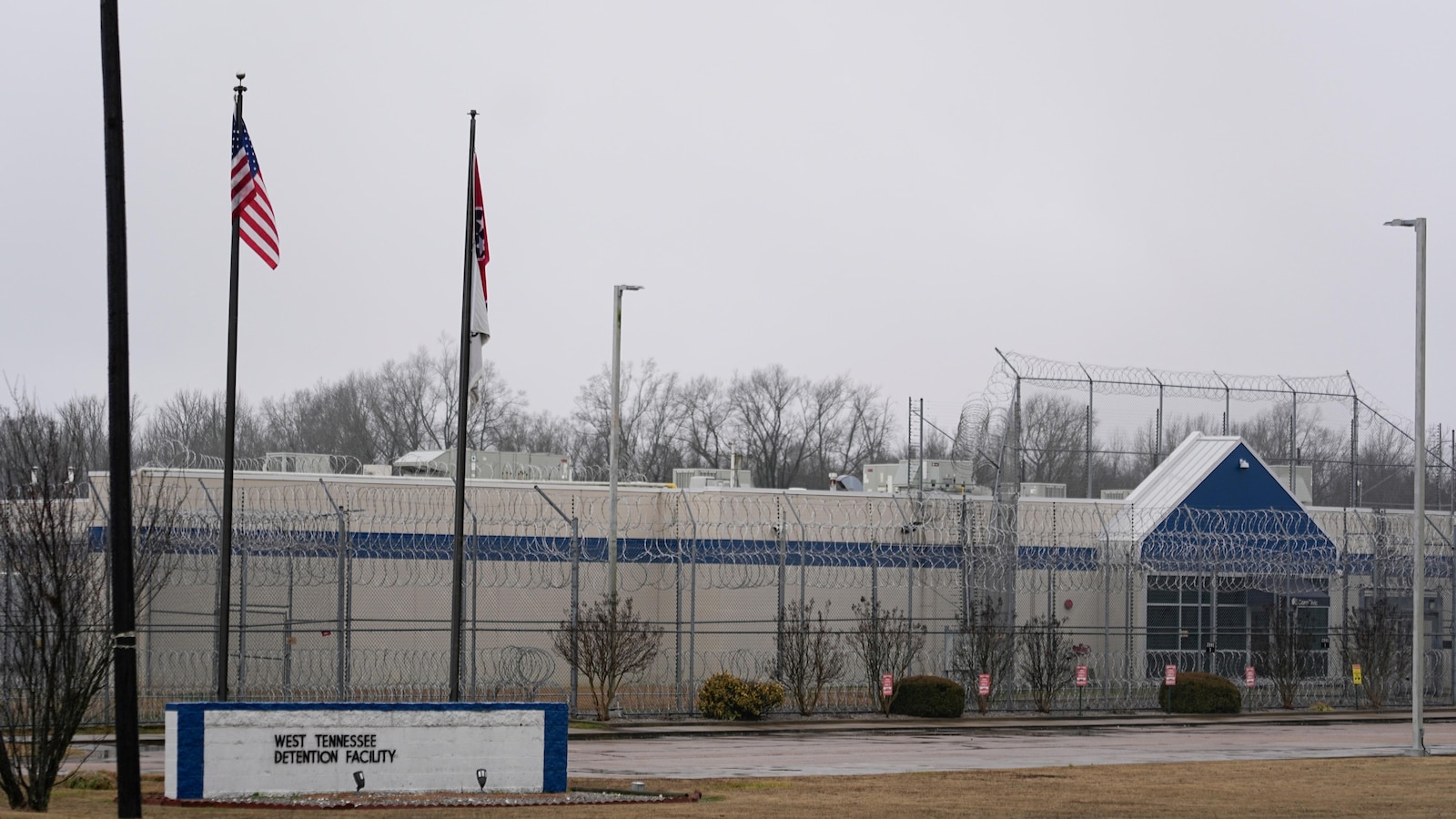MASON, Tenn. — Officials in a rural Tennessee town voted Tuesday to approve agreements to turn a former state prison into an immigration detention facility operated by a private company, despite loud objections from upset residents and activists during a contentious public meeting.
The five-member Board of Alderman in Mason, plus Mayor Eddie Noeman and Vice Mayor Reynaldo Givhan, met in a fire station garage to discuss converting the closed West Tennessee Detention Facility into a U.S. Immigration and Customs Enforcement detention center run by CoreCivic Inc.
Also present were a few dozen vocal, angry members of the public who oppose allowing ICE to house immigrants in Mason who have been taken into custody as President Donald Trump pushes for mass deportations. Trump has touted a Florida detention facility where allegations of mistreatment of detainees have drawn lawsuits from civil rights advocates and environmental groups.
The first vote of the meeting resulted in approval for a contract with CoreCivic to resume operating the facility, which was closed in 2021 after President Joe Biden ordered the Department of Justice to stop renewing contracts with private detention facilities. Trump reversed that order in January. The second vote, to approve an agreement with ICE, also passed.
It is not immediately known when the facility will reopen.
Noeman said he wanted to reopen the shuttered prison to bring jobs and economic development to the town, which has struggled with financial problems and needs infrastructure improvements. With a population of about 1,300, Mason is located about 40 miles (60 kilometers) northeast of Memphis. When it was open, the prison was the town’s largest employer and an important economic engine.
Noeman, an Egyptian-American immigrant and a longtime business owner in the town, called turning the closed prison over to CoreCivic and ICE a “win-win situation,” which led to a cascade of loud boos.
“It’s nothing personal about any immigrant,” Noeman said, adding moments later that “to give jobs to the people is what I’m looking for.”
At times, Noeman argued with attendees, questioning whether they actually live in Mason and telling them “you don’t know what you’re talking about.”
Before the meeting, board member Virginia Rivers told The Associated Press that she does not support turning the prison into an ICE facility because “I don’t like what ICE stands for, how they treat the people.”
During the meeting, she noted that some immigrants without criminal records are being swept up by immigration agents and separated from their families. She said approving the contracts would make Mason “complicit in the abusive treatment of immigrants.”
“We as officials of the town of Mason that were elected by the citizens should consider the consequences and the hurt that this would cause our local community, our neighbors, Tennessee schools and many families,” Rivers said.
CoreCivic said in a statement that the ICE facility would create nearly 240 new jobs, and it is currently advertising openings for detention officers at a pay rate of $26.50 per hour. The facility would also generate about $325,000 in annual property tax revenue and $200,000 for Mason that could be used for schools, infrastructure improvements and other projects, the company said.
“The services we provide help the government solve problems in ways it could not do alone — to help create safer communities by assisting with the current immigration challenges, dramatically improve the standard of care for vulnerable people, and meet other critical needs efficiently and innovatively,” CoreCivic said.
In 2022, Mason reached a deal with the state of Tennessee after it attempted to take over the city’s finances following years of alleged mismanagement. Some members of the public who spoke at the meeting said Mason is a majority-Black town with a history of being ignored and treated with disrespect.
One of the speakers, Charles Watkins, noted that CoreCivic was the operator of the prison under its previous name, Corrections Corporation of America.
“How is it that we can consistently let these organizations come into Black communities and then just somehow overwhelm us with the few dollars that they throw on the table as crumbs while they take the majority of the take back to wherever they came from?” Watkins said.
Tennessee’s corrections agency has fined CoreCivic $44.7 million across four prisons from 2022 through February, including for understaffing violations. Records obtained by AP also show the company has spent more than $4.4 million to settle about 80 lawsuits and out-of-court complaints alleging mistreatment — including at least 22 inmate deaths — at four Tennessee prisons and two jails from 2016 through September 2024.
The state comptroller released scathing audits in 2017, 2020 and 2023.
The Brentwood, Tennessee-based company has defended itself by pointing to industrywide problems with hiring and keeping workers.
___
Associated Press writer Jonathan Mattise contributed from Nashville, Tennessee.
